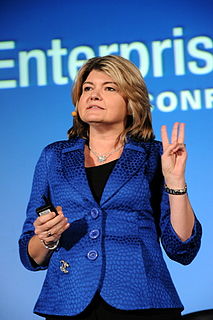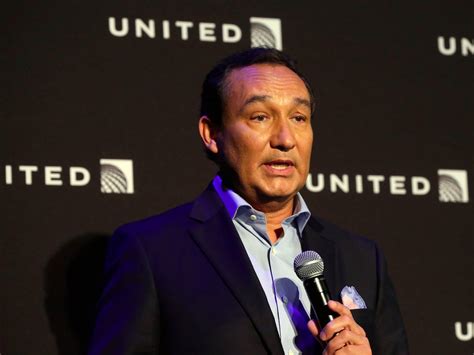A Quote by Sandy Carter
The number one use case for social media among our customers is around innovation - innovating with employees and with customers. For most businesses this is going to deliver the highest ROI.
Related Quotes
We'll continue to expand our footprint... Oracle's Fusion cloud applications for HCM, CRM and ERP all have a new simplified user interface and an integrated social network that makes our enterprise applications as easy-to-use and familiar as Facebook, while enabling better collaboration and teamwork among your employees and your customers.
Starting my own business was kind of a wakeup call in a number of different ways. I had to meet a payroll every week, and we had to satisfy customers, and we had competitors that we had to compete with in order to have those customers come into our stores, and we had to compete with other employers for our employees.
If you ask who are the customers of education, the customers of education are the society at large, the employers who hire people, things like that. But ultimately I think the customers are the parents. Not even the students but the parents. The problem that we have in this country is that the customers went away. The customers stopped paying attention to their schools, for the most part.
As a source of innovation, an engine of our economy, and a forum for our political discourse, the Internet can only work if it's a truly level playing field. Small businesses should have the same ability to reach customers as powerful corporations. A blogger should have the same ability to find an audience as a media conglomerate.
A lot of the philosophies of the businesses are just 'we're interested in getting customers now and if we're losing money with each customer now that's okay because we have this huge hoard of venture capital that we can subsidise the operation with and once we have the required number of tens of millions of customers and we drive our competitors out of business, then we can start to raise prices and become a proper business.'


































